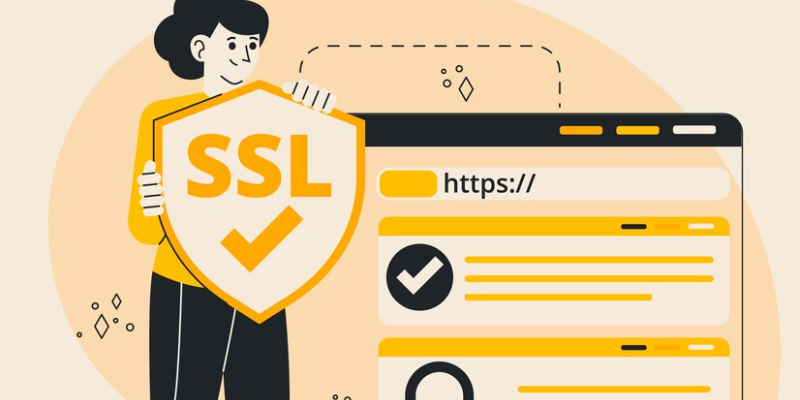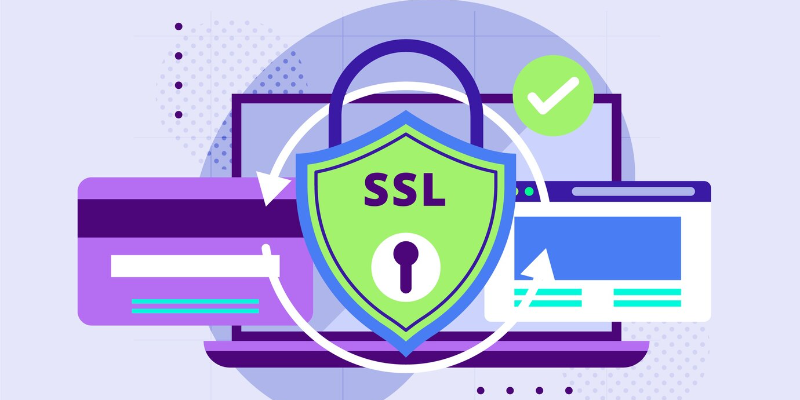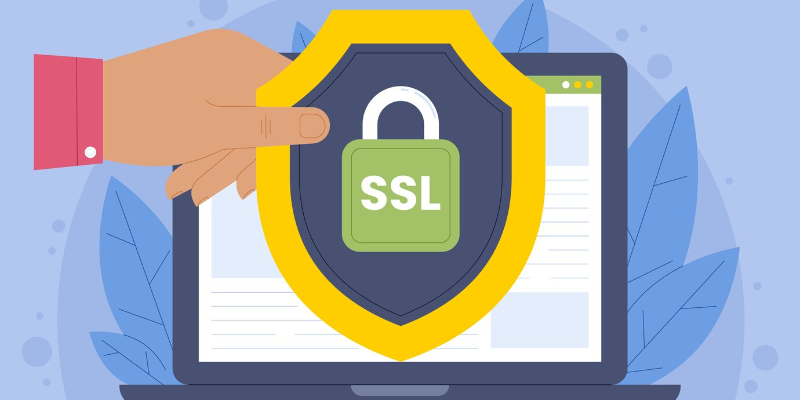

Secure websites are highly essential in the modern world where people rely on the internet for buying, browsing, or even providing site personal information. One will ensure the security of their data by installing SSL certificates. In this blog, we deeply review the contribution of SSL certificates to website and data security, which should be an important thing to read.
Now in this digital age, with data flowing freely and cyber threats popping up at every angle, security is the foremost consideration. SSL encryption is one of the prime methods for securing online communication. If you have ever seen a padlock icon in your browser address bar or the prefix "https://" in a URL, then you have certainly witnessed the functioning of SSL encryption. But what is, in fact, SSL encryption, and what makes it so vital for your website security? Let's take a look at how it acts as a protector for your data and an assurance for your online communications.
SSL is an abbreviation that stands for Secure Sockets Layer. The term SSL implies that this is a protocol or a mechanism that continuously protects communications between web browsers and web servers. This is achieved by the simple fact that the information exchanged is encrypted, a characteristic that renders it unreadable to anyone trying to intercept it. Therefore, it shows that every communication between the server and the user's browser is encrypted because the website has an SSL certificate.
For instance, a user may notice that secure websites display “https://” in their URLs with a small padlock icon next to the address. This at least indicates that this website employs SSL encryption to secure sensitive data. However, when it comes to SSL, it is not just about the browser; it is part of ensuring privacy and security when using the internet. These are ways of how SSL certificates protect websites:

The most common assignment or activity SSL certificate performs is encrypting. For instance, when you send something sensitive over the internet, for example, when you send a credit card number, personal data, or even the password to a site, SSL means that all of this stuff is encrypted while sending it.
There is no protection without SSL; hence, everyone has a free path to that data. Whoever is interested can steal your data while using the public Wi-Fi network. This makes it very complex for the most sophisticated hackers to decrypt or modify the information. This is especially important for websites dealing with sensitive information, like e-commerce sites and online banking services.
When you visit a specific website, how do you know that you're genuinely there and not at a replica that's only trying to steal your information? This concern is taken care of by SSL certificates.
An SSL certificate verifies that the site you are connecting to is in fact who it claims to be. In other words, it's a kind of digital ID card for the site. With SSL certification, the site has been validated by one of the Certificate Authority or CA as genuinely belonging to the site owner. Therefore, it prevents the fraudulent imitator sites from fooling users into leaving personal information.
For example, you're shopping online, and you arrive at a site that is a copy of your favorite store. Without SSL, it might just be a phishing site whose intent is to steal your credit card information. With SSL, you know that this site passed some level of security checks and, therefore, you are on the right page.
SSL certificates are also responsible for ensuring the integrity of data. This implies that, while being transmitted, the data is not tamperable. If someone tries to corrupt the data while going from the browser to the terminal, the SSL will catch it and terminate the connection.
It is an important factor in all online transactions. You buy a product on the internet and you get to know during transmission that the price has changed or the order has received a change in details. These eventualities are avoided by SSL certificates through the fact of safeguarding the data sent to and received by the servers.
Trust has to be developed for any website owner among its visitors. An SSL certificate forms an essential trust signal to users, assuring them of data safety. Users who see the padlock sign in their browser are more likely to enter personal or make a purchase. If the website doesn't have an SSL certificate, that user may sit indecisively wondering if their data will be safe.
Many browsers, including Google Chrome, now begin flagging websites without SSL certificates as "Not Secure." Some users could feel uneasy about this and may choose to walk away. An SSL certificate is therefore not a security measure, but a business decision with direct effects on the reputation of your business and customer confidence.
Did you realize Google prefers more secure sites than non-secure ones? Indeed, by having an SSL certificate, your site elevates its search engine optimization. More specifically, Google's algorithm favors those using HTTPS over non-secure sites.
More and more websites flood the internet today. SSL helps to add some value to your search engines. If you are serious about growing your business online, then you need an SSL certificate.

Major risks in the online section to customers are phishing attacks. They are often associated with fake websites that appear genuine and end up having customers fill in their personal information. These websites can be hard to distinguish from phony ones in the absence of SSL.
SSL certificates therefore reduce the risk as it makes it very difficult for the impersonator to duplicate a legitimate website. The secure padlock icon along with the use of the prefix "https://" discourages any attempts at phishing schemes.
SSL certificates are mandated by several industries for different sites to fulfill compliance with data protection regulations. As an example, the General Data Protection Regulation in Europe, as well as the Payment Card Industry Data Security Standard, ensure that any site handling related sensitive data, such as payment details, applies SSL encryption.
In an age when data privacy and security are at the top of priorities, SSL certificates become a non-negotiable requirement for any secure website: basically, they protect sensitive info, verify the identity of a website, ensure data integrity, inspire user confidence, and help with SEO ranking.
If you're in the business of running a website for anything from blogging to the selling of goods, SSL would probably be the best thing to gain your users' security and your site's image. Cyber threats and data breaches are on the rise, hence there's no reason not to work with SSL to secure the site.
In short, SSLs are not just security features; they are a means of protecting data, building trust, and ensuring compliance. Hence, if you want to add an SSL certificate for website security, Bud can help you with it. Bud is a website maintenance company and web development company in Bangalore.